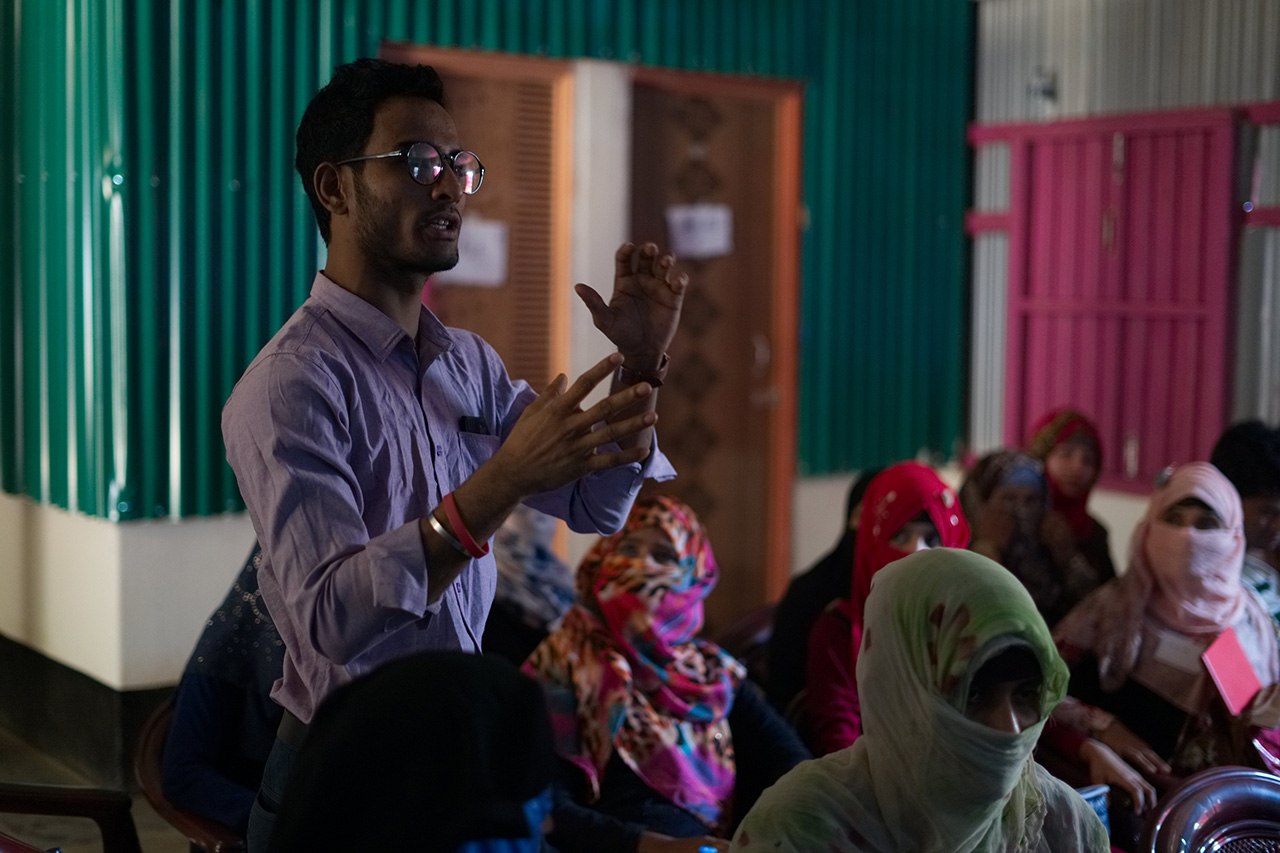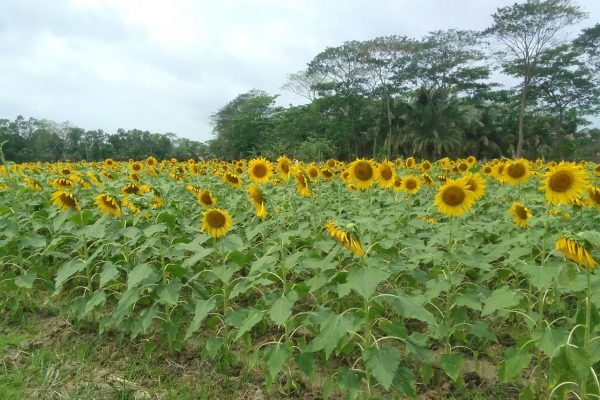Reading Time: 3 minutes
[…]
Everything I thought I knew about the Rohingya was upended when I listened to them tell their own stories, through the WFP Storytellers programme, implemented by the United Nations World Food Programme (WFP) in partnership with BRAC, in the camps in Cox’s Bazar, Bangladesh, in April 2019.
“This is me with my band at a recording studio,” said Muhammad Rafique, 19, showing me a picture on the mobile phone he brought with him when he fled Rakhine State in Myanmar two years ago.
As a journalist and a Bangladeshi-American – an immigrant myself – I had been following the news with horror since the crisis exploded in August 2017 and hundreds of thousands of desperate Rohingya flooded into Bangladesh on foot – but I had little understanding of who they were.
Then I had the privilege of participating as a writing trainer for a digital communications programme. I and my fellow trainers – Saikat Mojumder, a renowned photojournalist, and Hugh Rutherford, a videographer who had also trained WFP Storytellers in Uganda – developed a rich curriculum of principles and tools for digital storytelling.
We arranged special guest speakers, including Raba Khan, Bangladeshi social media celebrity and comedienne, who conducted a class and participated in the graduation ceremony and exhibition, a team from Deutsche Welle community radio, who demonstrated local broadcast journalism platforms, and Ahmed Hashim Ullah, a Canada-based Rohingya activist, who had recorded an encouraging message.
Armed with inspiration and smartphones, people learnt how to tell a story, take a good photo, and shoot videos and interviews.
Most importantly, they were empowered to share their own stories, in their own voices, not filtered through an outside editorial agenda but directly to the world via social media.

The harrowing image painted of them by the news media was of people who were uniformly from rural areas, unschooled, abjectly poor, cut off from the modern world and deprived even of familiarity with toilets. Locally there was a sense that, at least here in the camps, they were safe and fed, perhaps even better off than they had been back home.
Looking at young Rafique’s photo of happier days, it was impossible not to see how much he had lost – this bright-eyed young man, formerly a microbiology student at Sittwe University who spoke clear English – standing in the makeshift camps, just surviving, with no discernable future ahead.
Rafique was one of 30 Rohingya women and men students at our training. Each had a new perspective to share. The programme required some level of education, so I was training people not too unlike myself. One third of the class was from a city. For fun, they used to meet their friends in cafes after dinner. They loved Justin Bieber and Friends reruns.
Some had left behind multistoried houses with gardens, servants, cars and motorcycles. Many had been separated from their families, from fathers who stayed behind risking their lives to earn money to send over; those fathers included professionals such as doctors.
Some students had obtained, with great difficulty, special permission from the government of Myanmar to study past the Grade 10 limit placed on Rohingya. After having obtained that hard-won right, their hopes of becoming engineers, lawyers and teachers were dashed when their government unceremoniously revoked their university passes.

When I asked them to each name one object they most missed from home, they mentioned writing desks, books, schoolbags and diaries. Though many had fled with little more than the clothes on their back, a number of them had taken the time to grab their school IDs.
Identification cards of all kinds were preciously guarded commodities in this community of disenfranchised people, oppressed for their ethnicity and religion. Mohammed Yakub, 24, said his most valued possession was his grandfather’s Burmese passport bearing a Saudi Arabian visa – personal proof that a Muslim Rohingya once had an official place in Myanmar.
What else were they grateful to have brought with them? One student said: my faith. What did they appreciate about life in the camp? One man loved that he could hear the azan, the call to prayer, on the loudspeakers and in all corners of the camps – something not allowed back home.
I still see the faces of these young people when I hear the azan, when I pull out an ID card, when I drink a cup of coffee. They’re not just huddled masses to me anymore. I have heard their dreams, seen their dignity, and believe in their right to speak for themselves – and their right to a future, just like I have.
Rumana Habib was a writing trainer for the WFP Storytellers programme.





